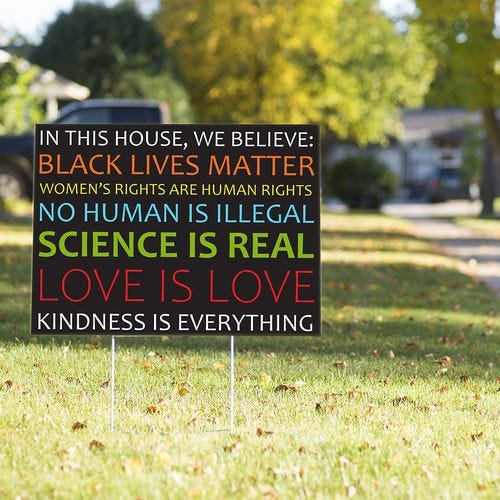Come back to the cultural sewer with me, just for a moment, because here’s the last time I’ll lay a quote on you from Klaus Schwab’s COVID-19: The Great Reset, from a discussion about public health measures to contain the pandemic:
This is ultimately a moral choice about whether to prioritize the qualities of individualism or those that favour the destiny of the community. It is an individual as well as a collective choice (that can be expressed through elections), but the example of the pandemic shows that highly individualistic societies are not very good at expressing solidarity.
Now: Pharmaceutical products sometimes fail, and sometimes cause serious harm, and it frequently takes a while for reality to get out of the dugout and take the field, so keep taking your FDA-approved Vioxx. It’s safe and effective! I rarely give up on books, but I gave up on Ben Goldacre’s 2012 book Bad Pharma about halfway through — for the same reason you’d stop eating a skillfully prepared shit sandwich. I felt like, yes, I get the point: Sometimes a drug is ineffective, sometimes a drug is outright harmful, and the manipulation of science and of regulatory agencies is more common than you would ever have wanted to know.
But it’s different this time, even while “this time” fits a very long pattern. As much as Big Pharma course corrections are always hard, this one will be infinitely harder. We’re not currently debating the efficacy of a pharmaceutical product, or of a class of pharmaceutical products; instead, we’re debating self-conception, social status, and cultural position. The claim “I don’t think these mRNA injections are as safe as they’ve been made out to be” is a character attack that threatens to take people out at the core like dynamite under a bridge: Are you saying I’m not a good person?
Bad Cattitude has been on fire lately on the topic of elite self-hypnosis and the descent into an “entirely hallucinatory landscape.” Consistent with this shrewd feline analysis, look again at what Klaus Schwab said about lockdowns and the suppression of economic activity in the name of public health: He said that shutting down our open societies was a “moral choice” about “expressing solidarity.” (My mask is for you, your mask is for me!) The discussion isn’t about what works, and has never been about what works. It has never been a discussion about the efficacy of anything; it’s a posture about social character, and always has been. Are you a bad, selfish person, or are you a good person who believes in kindness? The subtext about social class strikes me as too obvious to explicate, because mean people belong in their trailer parks in flyover country, and kind people are high-status. Review the lawn signs if you doubt this.
So when you question the little vial of fluid that goes into a syringe to be injected into your body, you’re not asking questions about the way a medical product works — or at least, you’re not asking questions that are perceived, by advocates of the injections (or the lockdowns, or the masks), as a discussion about safety and efficacy. You say, “Does it work? Is it safe?” — but they process it as an attack on their moral choice to express solidarity:
Are you saying we should have stood up for selfishness? Which means, if we bring the subtext to the surface, Are you saying we should have engaged in low-status behavior?
In the summer of 2020, our city government padlocked outdoor tennis courts and fenced off playgrounds in the parks. When I wrote to our city council and asked, repeatedly and with growing forcefulness, what evidence they had that outdoor tennis and playgrounds for children were at the center of the danger for Covid-19 deaths, a member of the council forwarded one of my messages all over town to show that a domestic terrorist was attacking her for keeping the community safe.
Q: What evidence do you have that this measure works?
A: He’s angry that I’m protecting you! The bad person is mad that I’m a good person!
This is every exchange we have. Keep pushing forward with a discussion about how Covid-19 vaccines work, and what they do to our bodies. But know that you’re talking to people who automatically translate everything you say into a different language. He’s saying we should have been mean instead of being kind!
The discussion about actual efficacy and actual danger is being received and engaged as a discussion about status and identity. Eventually the evidence will be too clear to avoid…
…and rational people will prevail. But there’s no way to exaggerate the emotional barriers this victory will breach, or to fully predict how much rage the moral recoding of status-implicated personal choices will cause.
“A problem arises,” Gad Saad writes, “when we apply the wrong system to a given situation (such as letting our emotions guide us in a situation that requires reason, or vice versa).”
We’ll be living that problem for years, and it’ll be ugly.






The emotionally deranged, moral one-dimensionality of liberalism strikes again. They see everything along the care-harm axis, and therefore little concerns about, oh, liberty, say, or you know, truth, translate into their heads as "bad person doesn't care if others get hurt". They lack even the ability to register questions framed along other moral axes. It's not a language they speak.
Me, I'm at the place where I'm quite happy saying, no, your safety is not more important to me than my freedom.
There's one of those 'In This House We Believe' signs in my neighborhood.
At the other end of the block people are sleeping in their cars. For some mysterious reason the cars don't have 'In This Car We Believe' bumper stickers.